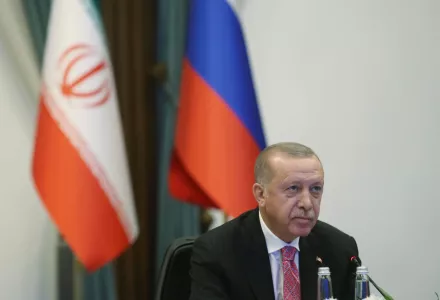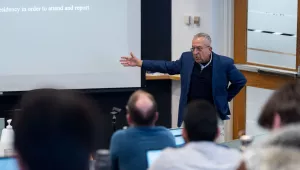
Summary
The Russian intervention in September 2015 provided decisive air power to Syrian and Iranian-backed ground forces, expanding Bashar al-Assad's territorial control and solidifying the regime's hold on power through parallel diplomatic efforts. Challenges associated with military integration materialized due to the Iranians' perceived lack of Russian air support and misunderstandings over basing agreements. However, throughout the course of the Syrian Civil War, regularized military and political exchanges strengthened the Russia-Iran relationship while contributing to greater coherence between Moscow and Tehran on the limits and parameters of cooperation. With the changing military dynamics in Syria, Russia, Iran, and Turkey spearheaded the Astana Process as a parallel track to UN mediation. Moscow's diplomatic and military gains, however, have also embroiled them in the broader regional conflict between the United States, Russia, Israel, and Iran.
Although Russia and Iran have converged around the overarching objective of strengthening the Assad regime, Moscow and Tehran's engagement in Syria illustrates a complex mosaic of overlapping interests, broader regional entanglements, and contending approaches to post-war reconstruction. Russia and Iran's visions on the future of Syria include diverging views on military reform and economic investment. However, these disagreements are unlikely to lead to a breakdown of the relationship. Moscow and Tehran learned from their experience mitigating tactical disagreements in military campaigns and are more likely to delimit spheres of interests within Syria as both seek to reap the political and economic benefits of close linkages to Damascus. The experience of close cooperation and sustained contacts has simultaneously improved Moscow and Tehran's ability to address the burgeoning challenges of a post-war settlement in Syria.
Grajewski, Nicole. The Evolution of Russian and Iranian Cooperation in Syria. Center for Strategic & International Studies, November 2021.
The full text of this publication is available via Center for Strategic & International Studies.





